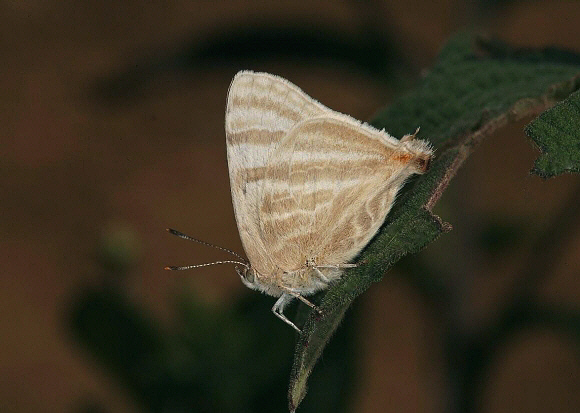
Introduction
Almost all neotropical and North American Theclinae species are placed in the Eumaeini. The tribe is not especially well represented in collections, so for a long time many remained unstudied and were inappropriately filed away in the ‘convenience’ genus Thecla. Many taxonomists have attempted to rationalise the systematics of the Eumaeini, the most recent being Robbins who published a revision in 2004, reclassifying the taxa into 83 genera. Currently there are 1058 known species. Taking into account their small size, secretive behaviour, and the great similarities between many species, it is estimated that about another 200 species probably remain to be discovered.
There are 18 Arawacus species, all of which are confined to the neotropical region. In most species the underside ground colour is white, marked with a zebra pattern of black stripes radiating from the tornus of the hindwing and terminating at points along the forewing costa. In jada the pattern is similar, but the colours are very muted. The upperside of jada is metallic sky blue, except for the apical area which is blackish brown.
Arawacus jada is found in Mexico, Guatemala and Nicaragua, but is also recorded as a rare stray in Arizona, USA.
Habitats
This species occurs in open deciduous woodland, scrub, and along roadsides, at altitudes between about 200-1800m.
Lifecycle
The larva when fully grown is plump, pale green in colour, and covered with short whitish hairs. It feeds on Solanum erianthum and S. umbellatum ( Solanaceae ).
Adult behaviour
Both sexes nectar at the flowers of various bushes and herbaceous plants.
